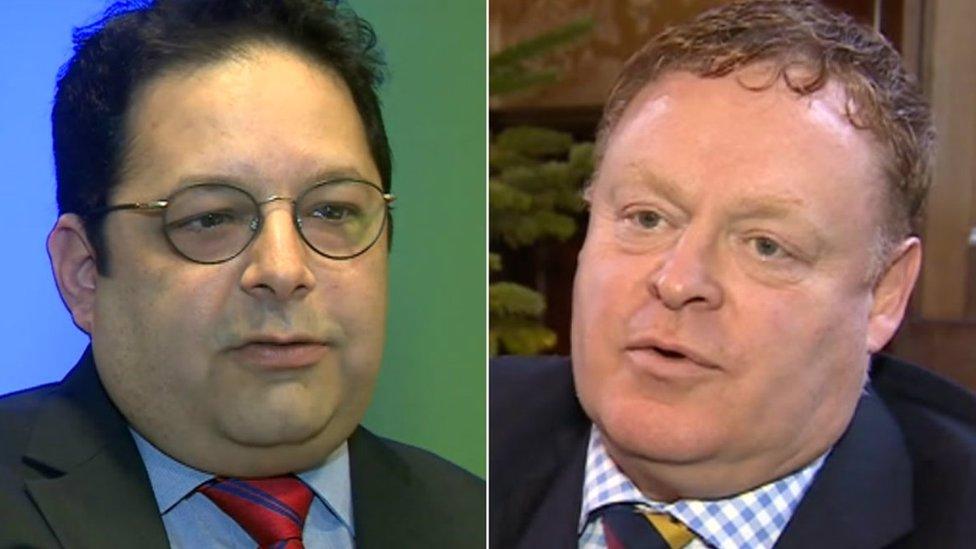Cleveland Police admits illegal phone surveillance
- Published

Former officers Mark Dias and Steve Matthews said they were viewed as the enemy, bullied and intimidated by the force
A police force has admitted to unlawfully accessing the private phone records of journalists and a solicitor.
Cleveland Police used anti-terror powers as part of an investigation into alleged leaking of confidential material to newspapers in 2012.
However, the force claimed it was justified in secretly monitoring the phones of two former officers.
Mark Dias and Steve Matthews claim they were targeted after challenging misconduct by fellow officers.
The decision over whether the force's covert techniques used against its former employees were lawful will be made in the new year, following an Investigatory Powers Tribunal.
'Stitch up'
At the hearing in London, Judge Sir Michael Burton said although he reserved judgement until 2017, it was clear what his decision would be.
He said the force should start thinking about compensation for the two officers.
Cleveland Police claimed it was justified in using the Regulation of Investigatory Powers Act (RIPA) - which has since been replaced.
In a four-month period the force monitored over a million minutes of telephone data, the tribunal heard.
Mr Matthews, the former head of Cleveland's Police Federation, said: "I honestly think they were trying to stitch me up."
If anyone criticised the force "they would be jumped on and, as part of that campaign, I was singled out", he said.
Mr Dias said the force monitored his phone calls, emails and activity.
The officers' legal team said the "force's casual disregard for the legal framework beggared belief".